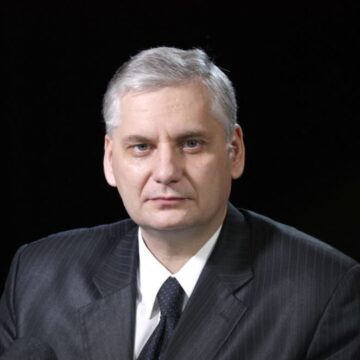The incident involving the Russian aircraft shot down by the Turkish air force will be a difficult test for bilateral relations between Moscow and Ankara. Until recently, politicians and experts viewed them as an example of success in improving relations between the former historical enemies.
Meanwhile, it would be wrong to consider the current problems as something which arose suddenly and for no apparent reason. Prominent Turkish expert Bulent Aras has described Turkish-Russian relations as a «competitive partnership.»
Indeed, the views of Moscow and Ankara have not coincided on many political subjects, including both the Nagorno-Karabakh conflict between Armenia and Azerbaijan and Georgia, whose territorial integrity has not been questioned by Turkish politicians.
A relationship based on pragmatism
However, the countries were able for a long time to narrow their differences through the development of mutually beneficial economic relations. It seemed that pragmatism would continue to overshadow the contradictions and debate on political subjects.
Moreover, the relationship between the last decade’s leading Turkish politician Recep Tayyip Erdogan and the United States and the European Union left much to be desired.
Ankara was not happy about Washington’s relations with the Kurdish movements in the Middle East, while the movement of the Turkish Republic toward European integration did not meet much enthusiasm on the part of Brussels. The parties were unable to reach a breakthrough on the issue of Cyprus.
In addition, the «Kurdish card» in Turkey also provoked debate within the EU about the advisability of bringing Turkey into the fold. Moreover, the Turkish Republic was the only NATO member country to receive the status of a dialogue partner in the Shanghai Cooperation Organization (SCO).
In short, Russia and Turkey agreed to disagree on some issues, but did not cross the «red lines» and question the need for increased economic cooperation. This was evidenced by the preparation for the implementation of the Turkish Stream energy project, designed to reduce Russian dependence on Ukraine as a transit country for the export of Russian gas by circumventing it completely.
Revolution in the Arab world
However, it is not in 2015 that the logic of an «agreement to disagree» began to break down. The origins should be sought in the events of 2011, when the so-called Arab Spring came to the Middle East.
If Moscow saw this event as a dangerous challenge associated with the collapse of the secular state, the strengthening of Islamic fundamentalism and concerns about its export to the post-Soviet states and Russia itself, then Turkey saw it as a chance to return to the region, which Ankara for many years did not see as its priority.
Hence Turkish support for the leader of Egypt’s Muslim Brotherhood, Mohamed Morsi, a sharp turn to criticism of Israel and political support of Palestine, and the struggle against the regime of Bashar al-Assad. Ankara has effectively made a claim for the Middle East as its sphere of influence.
As a result, the two Eurasian giants formed different political «lenses.» In Syria, Moscow sees Islamic State (ISIS) and the collapse of the secular state as the main threat, while Ankara fears the strengthening of the positions of the Kurds and the Alawites, and the defeat of its «clients» who are interested in the strengthening of the Turkish influence in the region.
Finding a way forward
There is no doubt that the incident with the aircraft has jeopardized relations between the two Eurasian giants. Each has both national prestige and its understanding of the prospects of getting out of the current situation at stake. Of course, the situation will continue to change and refine itself. Emotions have reached a high point both in Ankara and Moscow.
But, firstly, the parties already have some experience of getting out of complex and almost deadlocked situations. Secondly, neither side wants to help third parties by weakening each other.
Thirdly, Turkey is well aware that in spite of its dislike for Assad, destabilization in the neighboring country may rebound on Turkish society itself. There is radical Islamist sentiment in the country, and its carriers are ready to fight against Erdogan, regardless of his relations with Russia. Even by spoiling them, he will not get forgiveness and support from these people.
All this provides faint hope that the parties will find some modus vivendi in this difficult new environment.










